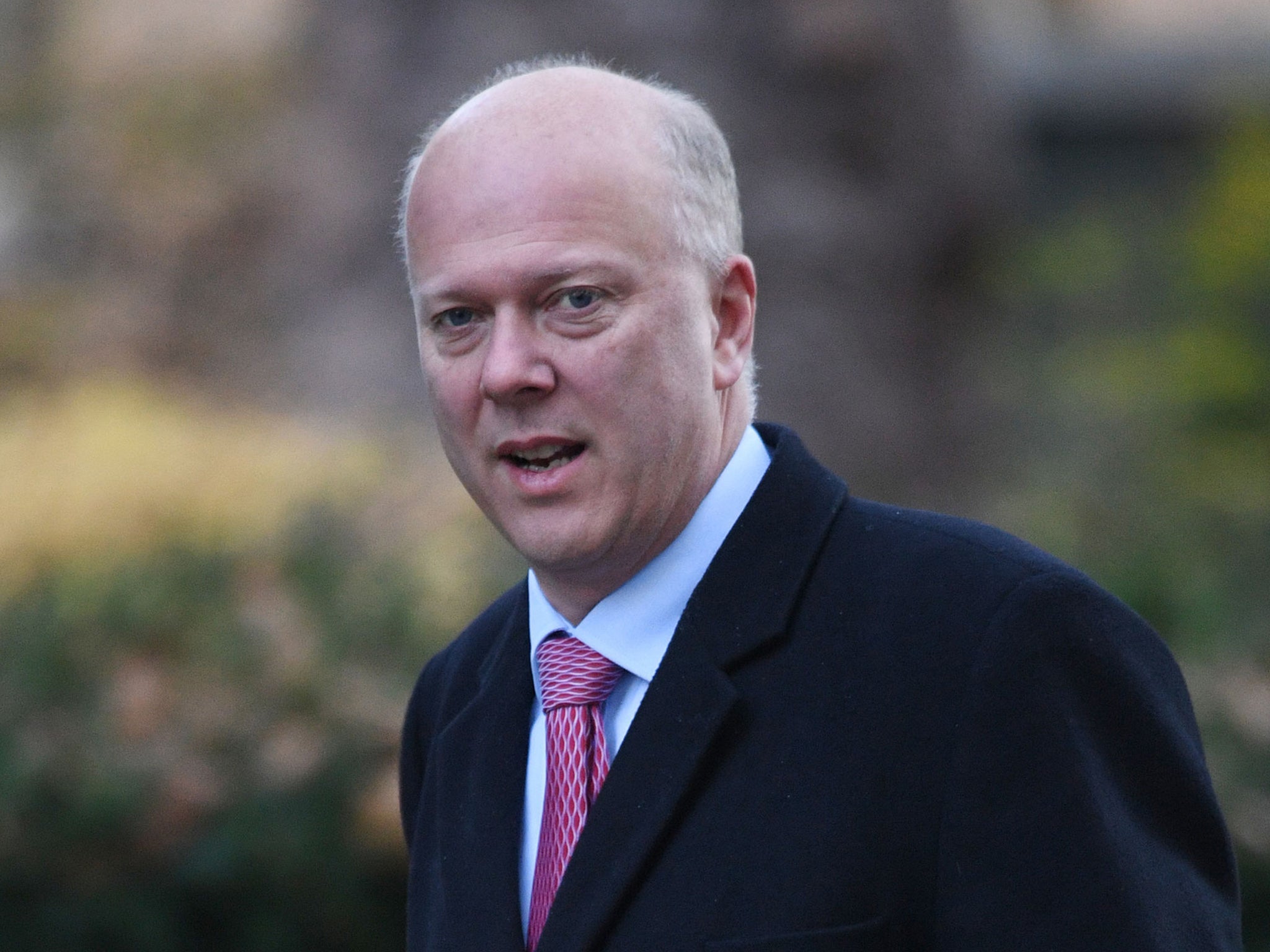Chris Grayling's part-privatisation of probation services 'irredeemably flawed', inspector finds
‘Reckless privatisation of probation has left the public less safe and wasted hundreds of millions of pounds,’ shadow justice secretary says

The British public has been made less safe by Chris Grayling’s “irredeemably flawed” part-privatisation of probation services, it has been warned.
HM Chief Inspector of Probation said the 2014 decision to divide offenders between the public National Probation Service (NPS) and private community rehabilitation companies (CRCs) had caused “poor quality” monitoring of criminals.
Dame Glenys Stacey’s annual report said more than 250,000 people are currently under probation supervision and failures to rehabilitate them “matter to us all”.
“If probation services are delivered well, there would be less reoffending, fewer people living on the streets, and fewer confused and lonely children, with a smaller number taken into care,” the inspector added.
“The future model for probation services needs to ensure more consistent and effective supervision, to reduce reoffending as far as possible and to keep the public safe.”
Under Mr Grayling’s Transforming Rehabilitation programme, CRCs were created to manage low- or medium-risk offenders, while the NPS dealt with those deemed more dangerous.
From 2015, every criminal released from prison became subject to statutory supervision, which had previously only been required for those serving more than a year in jail.
Inspectors warned that the “two-tier” system has let known criminals kill and rape while supposedly under supervision, and left domestic abuse victims at risk.
Since the changes, a “skyrocketing” number of criminals have been recalled to prison, more than 200 offenders supposedly being monitored by CRCs have been charged with murder and others have committed serious offences or disappeared.
Some CRCs have been monitoring offenders over the phone and meeting them in cafes, sometimes playing white noise tracks in an attempt to prevent members of the public overhearing sensitive conversations.
Dame Glenys said the commercial pressures for CRCs to make profit had “led to a diminution of the profession and poor-quality probation supervision”.
Arguing probation is not a “transactional” service, the chief inspector said: “We are not talking here about who supplies your internet access.
“To be plain, public ownership is the safer option for the core work. There’s no doubt about that but it’s all in the detail of the model.”
The inspectorate’s report said eight out of 10 CRCs are rated “inadequate” but the public-sector NPS is “performing better overall”.
After a Justice Committee inquiry called on the government to overhaul the “mess” last year, David Gauke announced a restructure of CRCs and new contracts.
A National Audit Office report revealed that bailouts for failing companies and contract cancellations will cost taxpayers more than £467m.
Dame Glenys said the new plans were an improvement but “will not be enough”, calling for the current model, seeing services split by region, to be replaced by a national system.
“Experience has shown that it is incredibly difficult, if not impossible to reduce the probation service to a set of contractual measures,” she added. “I urge the government to consider carefully the future model for probation services.”
Dame Glenys also backed justice secretary Mr Gauke’s call to scrap short-term prison terms, but warned that judges and magistrates would need to regain confidence in community sentences first.
Richard Burgon MP, Labour’s shadow justice secretary, said: “Mr Grayling’s reckless privatisation of probation has left the public less safe and wasted hundreds of millions of pounds in bailing out failing private probation companies.
“Instead of continuing with the deeply flawed idea of running probation for profit, the Tories need to act on the mounting evidence, scrap their plans for new private contracts and bring probation back in-house.”
Rory Stewart, the prisons and probation minister, said the government was “working towards a probation service that puts public protection first, commands the confidence of the courts and breaks the cycle of reoffending”.
“Our reforms mean 40,000 more offenders are being supervised, which is a positive move for public safety, but it is clear the current model is not working and there is much more we need to do,” he added.
“We have already taken decisive action to end the current contracts early and have invested an extra £22m a year to support offenders on release – and we are carefully considering how best to deliver an effective probation service for the future.”
Subscribe to Independent Premium to bookmark this article
Want to bookmark your favourite articles and stories to read or reference later? Start your Independent Premium subscription today.
